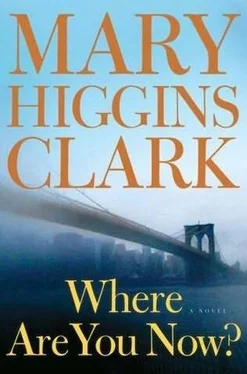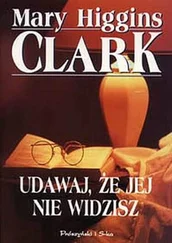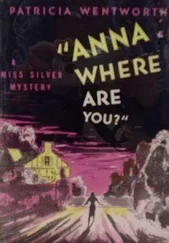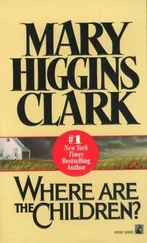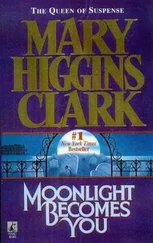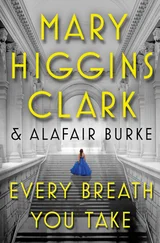They were in the library of their spacious Park Avenue apartment. Whenever Bruce was away on a business trip, the realization of how happy he was in his home and with his family hit him afresh. Barbara had changed to light green pajamas and unpinned her ash blond hair so that it fell loose on her shoulders. He had long since passed the days when he felt clumsy and awkward in her presence, but even so, the sense that he might one day wake up and find he’d been dreaming, that life as he knew it was an illusion, always lingered in his subconscious.
He had witnessed the growing tension in Barbara for the past few days since the media began linking Mack to the disappearance of Leesey Andrews, the girl from Connecticut, and then to the murder of the drama teacher.
During the broadcast, with the jealousy he had never overcome, Bruce had watched his wife’s face when pictures of Mack were flashed on the screen. After he pushed the power button on the remote and watched the screen turn dark, he knew it was time to discuss what needed to be done.
“Barb,” he said, “I was in the nightclub the night that first girl disappeared.”
“I know, but so were twenty other guys from Columbia, including Nick and Mack,” Barbara said, avoiding his eyes.
“Carolyn MacKenzie called me, but I haven’t returned her call. I’ll bet anything that she follows up on it. As the police investigation widens, it’s inevitable they’ll look me up. Nick and I were Mack’s roommates, after all.”
He watched as his wife tried to force back tears. “What are you driving at?” she asked, her voice unsteady.
“I think you and the kids should visit your father in Martha’s Vineyard. He’s had three heart attacks. No one would question it if you tell people he’s in bad shape again.”
“What about school?”
“For what we’re paying, we can arrange to get lesson plans and a private tutor. The school year is over in a few weeks’ time anyhow.”
He saw the uncertainty on his wife’s face. “Barbara, you joined a practice with two other pediatric surgeons so you’d have a measure of control over your personal life. I would say this is a time to assert that control.”
He got up, walked over to her, bent down, and kissed the top of her head. “I could kill Mack for what he did to you,” he said quietly.
“I’m over it, Bruce. I really am.”
No you’re not, he thought. But I’ve learned to live with that, and there’s no way on God’s earth I’ll let Mack hurt you again.
O n Wednesday evening, shortly after Mom and Elliott left, Detective Barrott phoned. I had thought that things couldn’t get much worse, but I was wrong. Barrott quietly asked if I knew that the call I had just received, that I had thought was a wrong number, had been made from Leesey Andrews’s cell phone. I was so shocked that I think it was a full minute before I said something like, “But that’s impossible.” I paused to digest the fact. “That’s absolutely impossible.”
Barrott curtly assured me that it was true and did I think it was my brother trying to reach me?
“When I answered it, someone hung up. I thought it had to be a wrong number. Can’t you tell that I didn’t speak to anyone?” I asked him angrily.
“We know that. We also know that this is an unlisted phone in your home, Ms. MacKenzie. Make no mistake. If your brother is the one who has Leesey’s phone, and if he tries again to contact you and you do not help us find him, you could become an accessory to a very serious crime.”
I didn’t answer him. I simply broke off the connection.
Sometime between four and seven A.M. on Thursday morning, I decided to phone Lucas Reeves and ask to meet with him as soon as possible. I needed help from someone I could trust to be thorough and impartial. I had already seen, from studying his file on Mack, that he had done a good job interviewing seemingly every possible person who had been close to my brother. The opinion he had given Dad was very clear. “There is nothing in your son’s background that would suggest he was experiencing a problem that would cause him to flee. I would not rule out the possibility of a mental illness that he had successfully concealed from everyone.”
Elliott and I were meeting at noon at the office of Thurston Carver, the criminal defense lawyer whom Elliott had found to represent us. At nine A.M., I phoned Reeves. He was not in yet, but his secretary promised he would call me back as soon as he arrived. It was obvious that she recognized my name. A half hour later, he returned the call. As briefly as possible, I explained what had happened. “Is there any chance you could see me this morning?” I asked, hearing the desperation in my voice.
His voice was deep and resonant as he answered. “I’ll rearrange my schedule. Where is your meeting with the lawyer?”
“On Park and Forty-fifth” I said, “the MetLife Building.”
“My phone number is the same, but I moved my office two years ago. I’m on Park Avenue and Thirty-ninth Street, just a few blocks down from MetLife. Can you be here at ten thirty?”
Yes, I could. I was already showered and dressed. The unpredictable weather had served up another blustery day. Looking out the window at people wearing jackets and keeping their hands in their pockets, I changed from the light suit I had planned to wear to a velour running suit, which made me look less like a lawyer and more like somebody’s sister. I won’t say that it flattered me. It was dark gray, and when I looked in the mirror I could see that it brought out the circles under my eyes and the unusual paleness of my skin. I don’t usually bother with much makeup during the day, but I took the time to use foundation, a touch of eye shadow, blush, mascara, and lip gloss. All tarted up in defense of my brother, I thought, then hated the bitterness in my thinking.
If only I had not gone to see Detective Barrott. If only I had not found the tape in Mack’s suitcase. Useless thoughts.
I could feel the beginning of a headache, and even though I wasn’t hungry, I went down to the kitchen, made a pot of coffee, and toasted an English muffin. I carried it to the breakfast alcove and sat at the table, gazing at the spectacular view of the East River. Thanks to the strong breeze, the current was visibly swift, and I found myself identifying with it. I was being carried by a current I could not fight, and I had to let it take me along until it either overwhelmed or released me.
I had been glad that Mom was in Greece for those few days and I had the apartment to myself. But that was when she was supposed to be somewhere else. It was incredible to me that she was in New York and not staying in her own home, but when I left the apartment, I understood why. The media trucks were there in full force, and reporters rushed to me looking for a statement. This is what happened to her last night, I thought.
I had phoned down to the doorman to hail a cab for me, and he had one waiting. Ignoring the microphones, I jumped into it and said, “Start driving.” I didn’t want anyone to overhear my destination. Twenty minutes later, I was in the reception room of Lucas Reeves’s office. Promptly at ten thirty, he escorted a tense-looking couple, whom I guessed to be other clients, to the outer door, looked around, and came over to me. “Ms. MacKenzie, come right in.”
I only remember meeting him once, when he came to Sutton Place ten years ago, so either he remembered my face or, since I was the only one in the waiting room, he assumed I was Carolyn MacKenzie.
Lucas Reeves was even shorter than I remembered. I don’t think he was more than five feet four with shoes on. He had a thick head of wiry salt-and-pepper hair that had clearly been dyed to give the illusion of natural graying. His face was creased with small lines around the mouth which suggested to me that he almost certainly had been a serious smoker. His deep, pleasant voice was incongruous coming from such a small man, but it matched the warmth in his eyes and his hearty handshake.
Читать дальше
